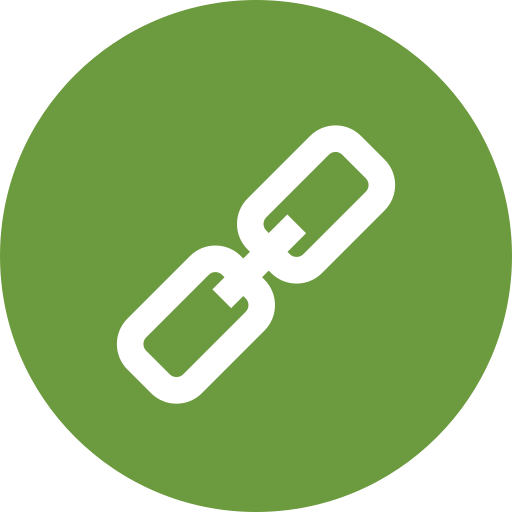| Product name | Per Pill | Savings | Per Pack | Order |
|---|---|---|---|---|
| 30 pills | $2.92 | $87.66 | ADD TO CART | |
| 60 pills | $2.33 | $35.77 | $175.32 $139.55 | ADD TO CART |
| 90 pills | $2.13 | $71.53 | $262.98 $191.45 | ADD TO CART |
| 120 pills | $2.03 | $107.30 | $350.64 $243.34 | ADD TO CART |
| 180 pills | $1.93 | $178.83 | $525.96 $347.13 | ADD TO CART |
| Product name | Per Pill | Savings | Per Pack | Order |
|---|---|---|---|---|
| 30 pills | $2.05 | $61.38 | ADD TO CART | |
| 60 pills | $1.72 | $19.33 | $122.76 $103.43 | ADD TO CART |
| 90 pills | $1.62 | $38.67 | $184.14 $145.47 | ADD TO CART |
| 120 pills | $1.56 | $58.00 | $245.52 $187.52 | ADD TO CART |
| 180 pills | $1.51 | $96.67 | $368.28 $271.61 | ADD TO CART |
| 270 pills | $1.47 | $154.68 | $552.42 $397.74 | ADD TO CART |
Kytril, also known as granisetron, is a medication used to prevent nausea and vomiting caused by cancer chemotherapy, radiation therapy, and surgery. It is available in various forms, including tablets and injections. In this article, we will focus on Kytril 2 mg and 1 mg, and provide information on how to order and purchase them.
What is Kytril?
Kytril is a selective 5-HT3 receptor antagonist that works by blocking the action of serotonin, a natural substance that can cause nausea and vomiting. It is commonly used to prevent and treat nausea and vomiting caused by chemotherapy, radiation therapy, and surgery.
Benefits of Kytril
The benefits of Kytril include:
- Prevention of nausea and vomiting caused by chemotherapy, radiation therapy, and surgery
- Relief from nausea and vomiting symptoms
- Improved quality of life for patients undergoing cancer treatment
- Available in various forms, including tablets and injections
How to Order Kytril
To order Kytril, you can follow these steps:
- Consult a doctor: Before ordering Kytril, consult a doctor to determine the right dosage and form of the medication for your needs.
- Choose a pharmacy: Select a reputable online pharmacy or a local pharmacy that carries Kytril.
- Place an order: Place an order for Kytril 2 mg or 1 mg, depending on your doctor's prescription.
- Pay and receive: Pay for your order and receive your medication.
Purchasing Options
There are several purchasing options available for Kytril 2 mg and 1 mg, including:
- Generic 2 mg Kytril with Mastercard: You can purchase generic Kytril 2 mg with a Mastercard.
- Generic Kytril 1 mg online: You can buy generic Kytril 1 mg online from a reputable pharmacy.
- Kytril 2 mg with Mastercard: You can order Kytril 2 mg with a Mastercard.
- Order Kytril with Mastercard: You can order Kytril with a Mastercard.
Tables
| Form | Dosage | Price |
|---|---|---|
| Kytril 2 mg | 2 mg | $10.99 |
| Kytril 1 mg | 1 mg | $8.99 |
| Generic Kytril 2 mg | 2 mg | $7.99 |
| Generic Kytril 1 mg | 1 mg | $5.99 |
Lists
Here are some lists of purchasing options:
- Ordering options:
- Order Kytril 2 mg line
- Order 1 mg Kytril with Mastercard
- Purchase Kytril with a Mastercard
- Buy Kytril on line Amex
- Purchasing options:
- Buy cheap Kytril 2 mg
- Purchase 2 mg Kytril with Mastercard
- Buy 1 mg Kytril with Visa
- Discount Kytril 2 mg overnight delivery
- Payment options:
- Mastercard
- Visa
- Amex
- Online payment
Conclusion
Kytril 2 mg and 1 mg are effective medications for preventing and treating nausea and vomiting caused by cancer chemotherapy, radiation therapy, and surgery. With various purchasing options available, including generic and brand-name options, you can order and purchase Kytril online or from a local pharmacy. Remember to consult a doctor before ordering Kytril, and choose a reputable pharmacy to ensure you receive high-quality medication.
Managing Nausea and Vomiting Caused by Cancer Medication
Nausea and vomiting are common side effects experienced by many patients undergoing cancer treatment. The medication used to treat cancer, known as chemotherapy, can cause damage to the cells in the lining of the stomach, leading to these unpleasant symptoms. In this article, we will explore the causes of nausea and vomiting caused by cancer medication, and provide tips on how to manage them.
Causes of Nausea and Vomiting
The following are some of the most common causes of nausea and vomiting in cancer patients:
- Chemotherapy: Chemotherapy is the most common cause of nausea and vomiting in cancer patients. The medication can cause damage to the cells in the lining of the stomach, leading to inflammation and irritation.
- Radiation Therapy: Radiation therapy can also cause nausea and vomiting, especially when the radiation is directed at the stomach or abdominal area.
- Surgery: Surgery can cause nausea and vomiting, especially if the patient has undergone a major operation.
- Hormonal Changes: Hormonal changes caused by cancer treatment can also lead to nausea and vomiting.
Types of Nausea and Vomiting
There are several types of nausea and vomiting that cancer patients may experience, including:
- Acute Nausea and Vomiting: This type of nausea and vomiting occurs within 24 hours of chemotherapy or radiation therapy.
- Delayed Nausea and Vomiting: This type of nausea and vomiting occurs 24-48 hours after chemotherapy or radiation therapy.
- Anticipatory Nausea and Vomiting: This type of nausea and vomiting occurs before chemotherapy or radiation therapy, often due to anxiety or fear.
Managing Nausea and Vomiting
The following are some tips for managing nausea and vomiting caused by cancer medication:
| Method | Description |
|---|---|
| Medication | Anti-nausea medication can be prescribed by a doctor to help manage nausea and vomiting. |
| Dietary Changes | Eating small, frequent meals and avoiding spicy or fatty foods can help manage nausea and vomiting. |
| Relaxation Techniques | Techniques such as deep breathing, meditation, and yoga can help reduce stress and anxiety, which can contribute to nausea and vomiting. |
| Acupressure | Applying pressure to certain points on the body, such as the wrist or ankle, can help alleviate nausea and vomiting. |
Here are some additional tips for managing nausea and vomiting:
- Stay hydrated: Drink plenty of water and other fluids to prevent dehydration.
- Avoid strong smells: Strong smells, such as cooking odors or perfumes, can trigger nausea and vomiting.
- Get plenty of rest: Resting and avoiding strenuous activities can help manage nausea and vomiting.
- Try ginger: Ginger has natural anti-inflammatory properties that can help alleviate nausea and vomiting.
Conclusion
Nausea and vomiting are common side effects of cancer medication, but there are several ways to manage them. By understanding the causes of nausea and vomiting, and using a combination of medication, dietary changes, relaxation techniques, and other methods, cancer patients can reduce their symptoms and improve their quality of life. If you are experiencing nausea and vomiting caused by cancer medication, talk to your doctor about the best ways to manage your symptoms.
Here are some additional resources for managing nausea and vomiting:
- National Cancer Institute: The National Cancer Institute provides information and resources on managing nausea and vomiting caused by cancer treatment.
- American Cancer Society: The American Cancer Society provides information and resources on managing nausea and vomiting caused by cancer treatment.
- Cancer Support Groups: Joining a cancer support group can provide emotional support and connect you with others who are experiencing similar symptoms.
























